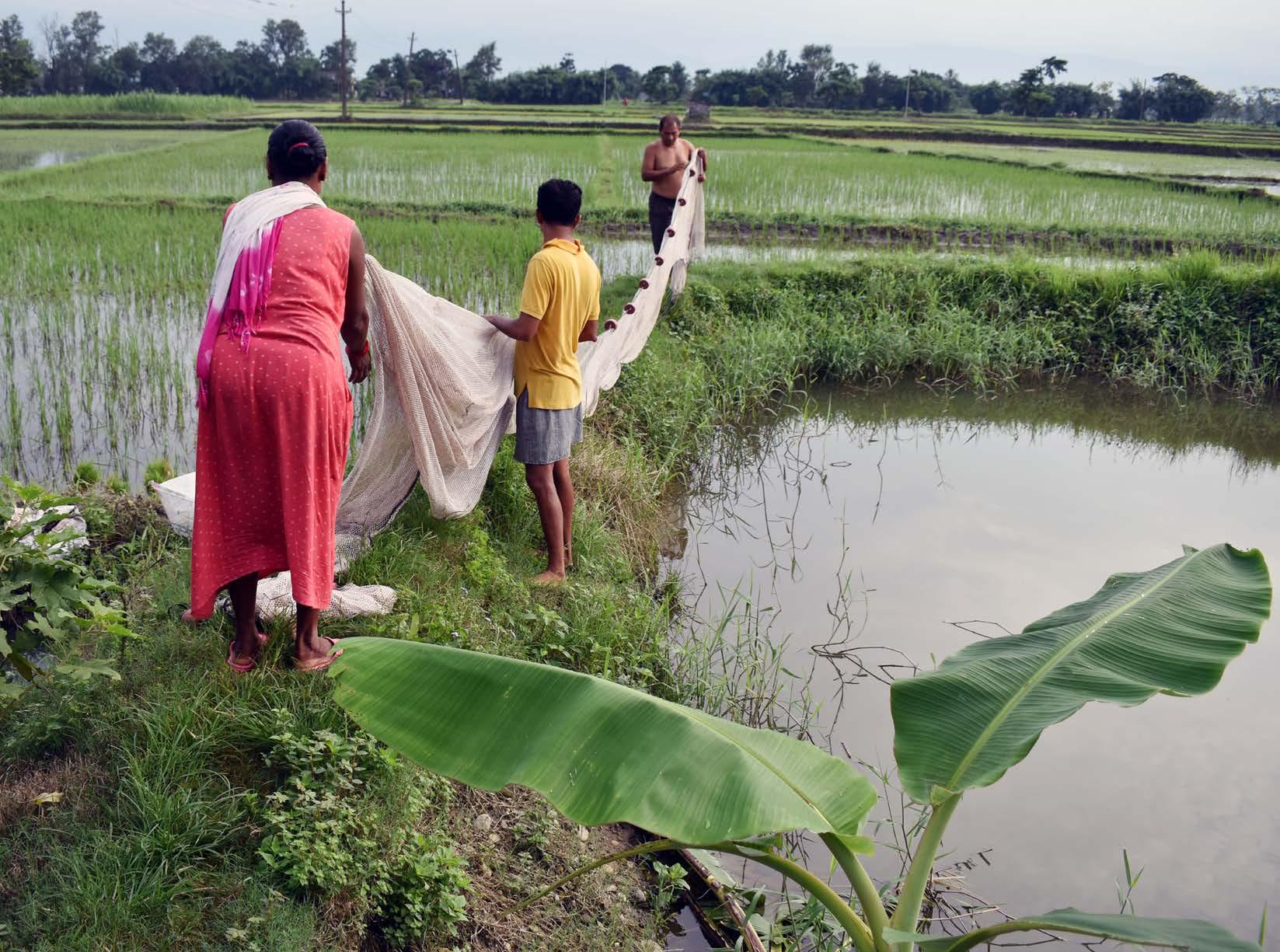
4 minute read
Starting from Production
All farmers know that farming requires a thorough understanding of what is being produced, how it reacts to weather, pests and diseases, as well as knowledge of their soil, and the surrounding environment. Plenty of this information is accumulated along the years and many farmers have a legacy of traditional knowledge that supports their work. In the western world, science and research gives a solid background for production methods but even that doesn’t eliminate the power of experience through field work. Here we give some examples from the projects where FFD has heavily contributed to the improvement of production techniques.
In Mozambique, Aniwanana Kanvanhiana (AKA), a cooperative of producer associations in the central part of the country, was founded by the Finnish bilateral project (PRODEZA II) in 2012. Its 1600 members produce different crops such as maize, sesame, beans, cashew, among others. FFD continued the support of AKA 2018-21, building key competences for cooperatives management and governance, and providing food production services for members services for food production: land preparation, maize processing, supply of seedlings, and inputs. As one of the most important results from the collaboration, AKA mentions the fixing of the warehouse roof, which was damaged during a storm, and the construction of a center for the concentration and sale of seedlings and nurseries. For a storm-prone area, infrastructure is very important. The majority of AKA’s members now apply an agroforestry system with cashew and fruit trees, allowing for greater diversification of the source of income and resilience to climate change.
“SLC supported FFD from the beginning and some years ago we decided to allocate one euro per member for FFD’s work annually. In this way, all the SLC members contribute to those countries where rural development, food security, income generation, equality, and equity still require work. In general, these countries suffer also disproportionally from climate change. We are proud to be part of the process to build a world without hunger.” — Mats Nylund, FFD board member and twinning partner representative of SLC in Mozambique
In Nepal, FFD has supported women fish farmers since 2013. In Chitwan province, women managed to establish three cooperatives, which constructed fishponds for carp farming. The ponds and the support to improve productivity of fish farming contributed largely for households’ nutrition as a protein source. Increasingly, when production is growing, it is being commercialized.


“The women fish farmers in the Nepal Terai are struggling with the same question women entrepreneurs in developed countries struggle with: will I have enough time, and how do I balance the business with my family life and my household chores? At the same time their motivation to start fish farming related businesses is imminent. When asked what made them proud as fish farmers, they replied: ‘I can make my own income’, ‘I can have my own ponds and not work for others’ and quite strikingly, ‘We women are proud that we can do something on our own. We also pride ourselves on being independent and being able to build our identity in society’. One thing that is certain is these women will make it, because they believe and they can”, says Roseanna Avento, Finnish Fish Farmers’ Association twinning partner of Sundardeep Women Fish Farmers’ Cooperative, Nepal.











